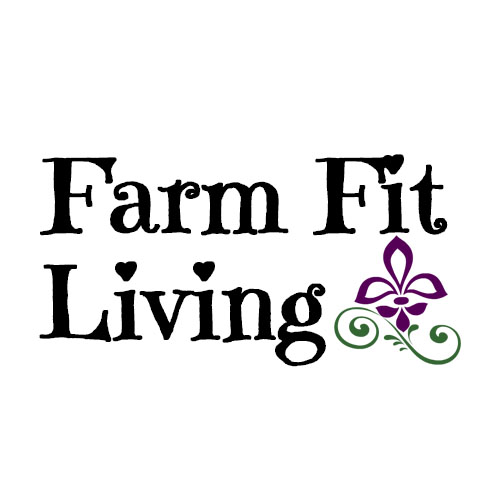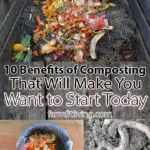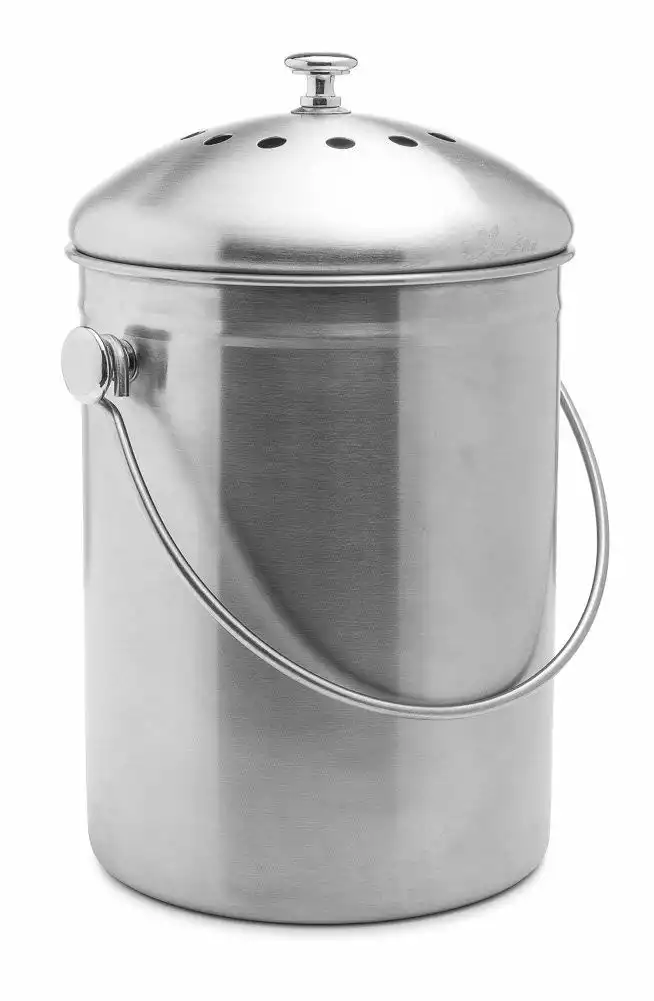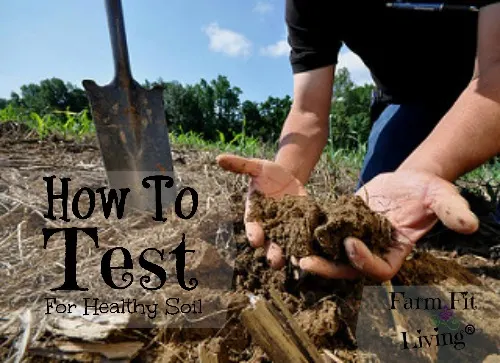Do you ever wonder about the benefits of composting?
What is so great about composting or the process of is? You hear about it being good for the soil, but how? What good does it do?
Well, in this post, I’m going to share:
– The top 10 benefits of composting based upon what my experience has been with it (as well as science).
– How good composting is for the soil and growing things.
– How you can get started learning how to compost today.
Listen to the Podcast:

Gives You A Place to Put Waste
This one is huge for me! As a mom of little girls, I seem to have a lot of wasted food. As a home cook and gardener who cooks with a lot of vegetables, I tend to have a lot of scraps and skins.
Composting has given me a place to put all of that organic waste instead of just throwing it away in the trash. I throw it into my kitchen compost and when my little compost bin is full, I take it out to the big compost bin. It is there that my kitchen waste turns into fertile gold I can use in my garden.
Isn’t it amazing how something you don’t want can turn into something you do just by breaking down? As you can see, there’s a lot of potential for anyone to learn the skill of composting. Let’s look at another one of my favorite benefits of composting.
Helps reduce soil erosion
Remember the Dirty 30’s? When it was so dry and top soil would erode and create intense dust storms?
Erosion is when soil either blows or washes away. We can prevent this from happening by either planting something into the ground or adding compost! Compost can either be used as a soil or as a mulch, making it the perfect weight for loose top soil.
Now, how’s that for conservation! Let’s talk about how it can help plants conserve water.
Reduces need by plants for water
As a moist substance and as a mulch, compost material is perfect for placing around plants. Acting as a mulch, it will help plants hold in moisture, reducing the need for watering.
This is a huge help for gardeners as it reduces the time and effort put into watering plants – especially lots of plants!
Gardeners still need to check for dryness but you’ll find that you’ll need to water much less than if your plant didn’t have a compost around it.
Increases organic matter in the soil
Another one of the great benefits of composting is that it helps build the soil up. Containing lots of organic matter is important to help the natural microbiomes in the soil.
You’ll have microbiomes in the compost as well. Microbials and important bacteria are needed in soil to help break it down. This also is important for soil health and growing better plants.
Microbiomes need plenty of organic matter to consume as they work to break down and keep soil healthy. The more organic matter the better, which is why compost is so beneficial.
Attracts earthworms
When I was a county Extension Agent, my lead area agronomist always used to say that a healthy soil is one with lots of earthworm holes in it.
Earthworms are natural aerators of the soil – Especially rich, moist soil. The moist soil helps them to navigate more easily. And while they move, they break up the soil components, making it nice and fluffy.
And plants just love a good fluffy soil made by earthworms.
I wonder if earthworms even know how good they are for the soil they live. And this is why we should promote them living it. Whenever my little girls pick up an earthworm, I encourage them to put it back so they can go home. They belong in the soil.
So, naturally, worms love a good compost and adding moist compost into your soil will attract worms…unless the worms have already found your compost!
Improves soil structure
All of the above put together improves the soil components and structure of the soil. The microbes and the earthworms work together (sort of) to make a healthy and productive for plants to grow.
The science of this all just amazes me. With compost, the microbes, worms, air, and water work together to break it down into black gold that can then be added to your soil to improve it. It will then continue to break down, resulting in an amazing soil structure.
And not only does it create great fluffy soil structure…
It also Balances the pH of the soil
It creates the perfect environment for seeds to germinate and thrive, that is the pH. Most plants, veggies and fruits require an average pH of 5-6. There’s ways you can lower or raise that as you need to, or you can add in some compost to balance it out.
If you want to test the pH of your soil, you need to take a soil test. This post will tell you exactly how to do that.
Reduces reliance on commercial fertilizers
When you have a healthy soil structure and seed bed, there’s no need to add in a commercial fertilizer. If you’ve taken a soil test and need to add in some Nitrogen or Phosphorus, you can always add on some dried animal manure instead.
Chicken poop is always good as a Nitrogen based manure while cattle poo is a really good phosphorus one.
Every year, we clean out our lots and make a pile separate from the compost pile. We build it into our compost pile gradually. I show you exactly how to do that in my Compost 101 course.
Builds sound root structure
If the soil is healthy and sound, the roots will grow. This is super important for plant health.
Think about you. If you had a comfortable bed and loving family growing up, you thrived. You had very little stress or anything to worry about.
On the contrary, if you didn’t have the luxury of the perfect living environment, you probably grew up with a lot of stress and unhappiness in your life.
Well, plants are the same way. And that’s why we make sure that the soil health are the perfect component, structure and nutrient level they need to thrive. And you can do that primarily with the compost you create.
Recycles Waste Into Usable Soil
This is the best benefit of all. It turns something you don’t want into something that is good for a lot of different things.
There’s something ‘feel good’ about recycling. And there’s a lot of reasons to do it.
One of the reasons I do it is because I don’t have a trash dumpster at my house. So we have to take our trash to the landfill on our way to town. This can get old and I like to minimize the amount of trash we accumulate by recycling things.
I turn boxes into containers. I turn pieces of paper into craft projects.
And I turn kitchen scraps and food waste into compost for the garden to better your soil. How cool is it that this is possible! Now, are you ready to get started?
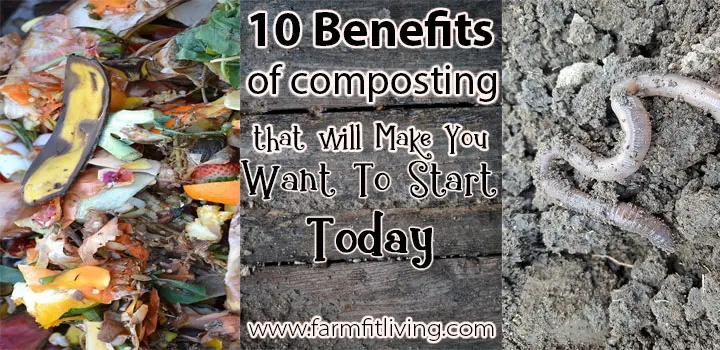
Are you ready to start creating compost?
You now know the secret benefits to composting – All 10 of them! And I’m sure there’s so many more that you can think of. But really, the health of the soil, the conservation aspect and the convenience for you are the three main headlines for why we compost.
All in all, plants need a healthy soil and compost provides the organic matter needed to balance it out. It also provides a mulch for the top soil that conserves erosion and water that could happen.
And finally, convenience. As busy people, we don’t always have the time to go to the landfill and we don’t always have the money or the location for a trash bin right outside our door. BUT, we can build a compost bin to turn some of our organic trash into usable organic wonderful compost that promotes all of the above.
Can you think of additional benefits of composting? Tell me in the comments!


Make Gardening Simple Now!

Simple gardening equals smart gardening. In this short, easy to read book, you'll get access to all the best practices and tips for gardening smarter and more successfully. If you want more information, I'll send it right to your email inbox!
